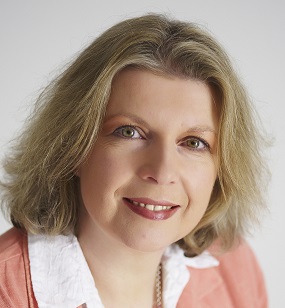
Supplements for Menopause
By medical nutritionist Dr Sarah Brewer, an expert in food, herbs and supplements
The menopause is a natural phase in a woman’s life when fertility draws to a close. Some women notice few problems, but most experience at least some physical symptoms such as hot flushes, night sweats, intimate dryness and fatigue. Emotional symptoms are also common, especially mood swings, poor concentration and low sex drive.
Prescribed hormone replacement therapy can overcome most of the symptoms, and in most cases the benefits outweigh the risks when started before the age of 60. Some women are unable to unwilling to take HRT, however, and even when you have used it successfully there usually comes a time when your doctor wants you to stop. Stopping HRT can mean a return of menopausal symptoms. If you prefer not to take HRT, or have stopped, the following supplements can help.
Isoflavones are plant hormones that can interact with human oestrogen receptors to provide a useful oestrogen boost at the menopause. A meta-analysis of 19 randomised controlled trials found that soy isoflavones significantly reduced hot flushes by 39 percent compared with placebo.
Probiotic bacteria help to activate isoflavones in the large intestines. It’s therefore worth taking isoflavones alongside a probiotic source (eg. bio yoghurt or supplements) or to take a prebiotic to feed the healthy digestive bacteria you already possess.
Royal jelly supplements have oestrogen-like effects and contain proteins which stimulate the production of collagen in skin cells. Royal jelly also promotes general feelings of wellbeing and is traditionally used to boost energy levels at the menopause.
Black cohosh helps to relieve hot flushes, vaginal dryness, depression and anxiety. Data from 12 studies that used pharmaceutical quality black cohosh supplements found they were 38.5 percent more effective than placebo in reducing menopausal symptoms.
Sage leaf extracts can relieve menopausal hot flushes and night sweats while also improving memory.
Sea buckthorn oil is rich in omega-7 fatty acids which can improve hair and skin quality as well as reducing dryness throughout the body. Sea buckthorn oil is especially helpful for overcoming female intimate dryness and dryness. As a bonus, sea buckthorn oil also lowers cholesterol.
St John’s wort can lift mood and improve an associated low libido. Research involving 111 peri-menopausal women found that taking St John’s wort extracts improved low mood, low sex drive, disturbed sleep and exhaustion.
Omega-3 fatty acids found in linseeds, hemp seeds and oily fish can improve hormone-related depression. If you don’t eat at least two portions of fish per week, once of which is oily, then an omega-3 supplement is a good idea.
Calcium is important for healthy bones at all stages of life, but especially after the menopause. If you don’t have the equivalent of a pint of milk per day from dairy products then consider taking a calcium supplement, in combination with vitamin D, magnesium and vitamin K2.
Rhodiola helps to reduce stress and improves energy levels to help overcome anxiety and fatigue, making it especially helpful for bringing back your va-va-voom!
NB if you are take any prescribed medication, check with your doctor or pharmacist before starting any supplements to check for interactions.
A bout Dr Sarah Brewer
bout Dr Sarah Brewer
Dr Sarah Brewer is a medical nutritionist and an expert in food, herbs and supplements. She qualified from Cambridge University with degrees in natural sciences, medicine and surgery. After working in general practice, she gained a master’s degree in nutritional medicine. Sarah is a licensed medical doctor, a registered nutritionist and a registered nutritional therapist.
Dr Sarah Brewer is the author of Menopause Diet – How To Eat To Beat Hot Flashes.
For more information on diet and supplements, visit Dr Sarah Brewer’s nutritional medicine website at www.DrSarahBrewer.com and follow her on Twitter.